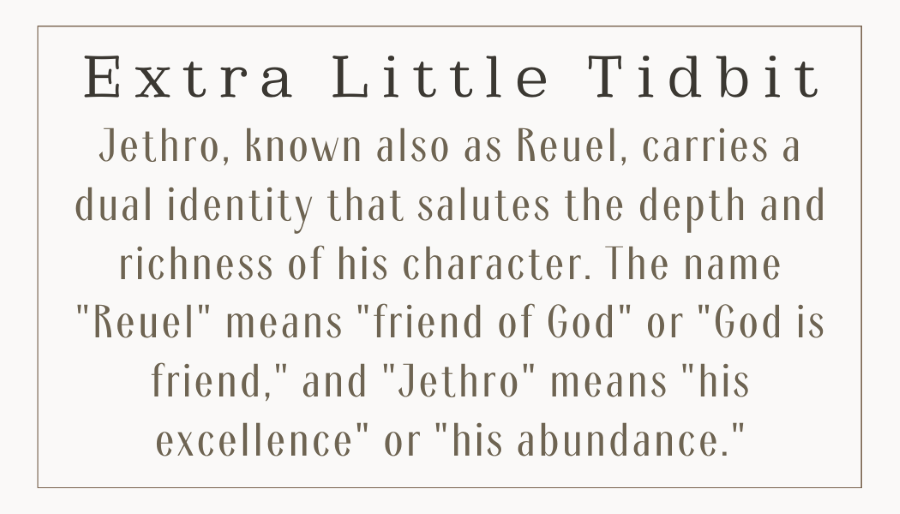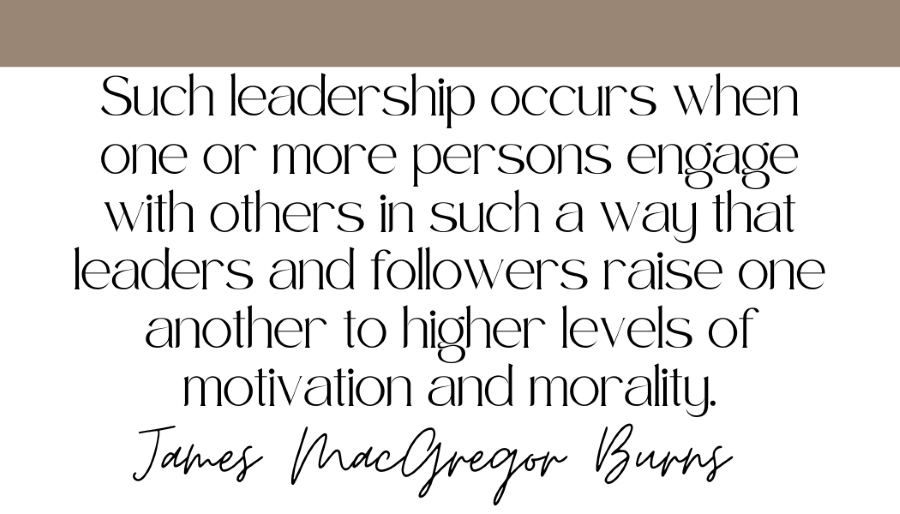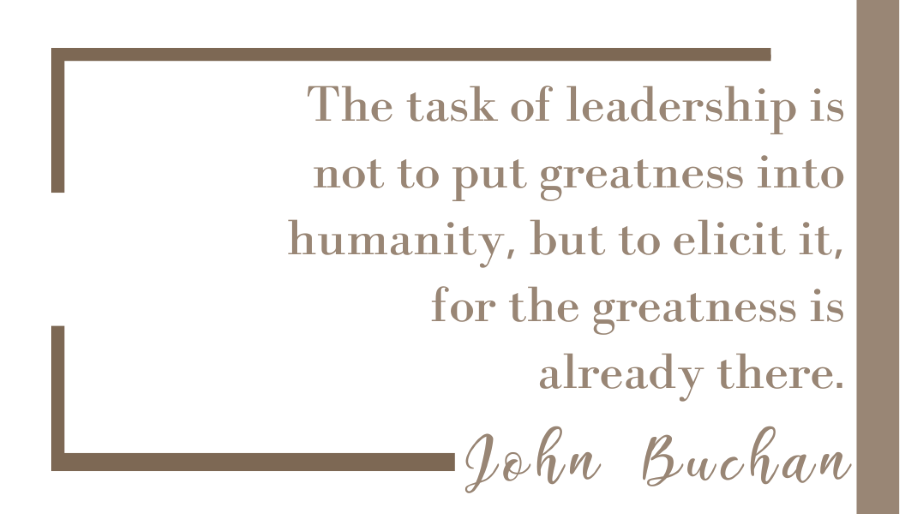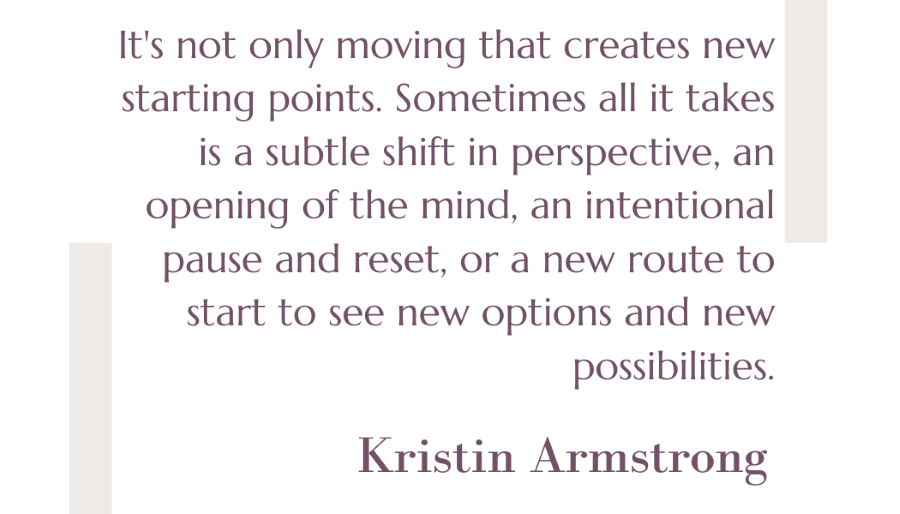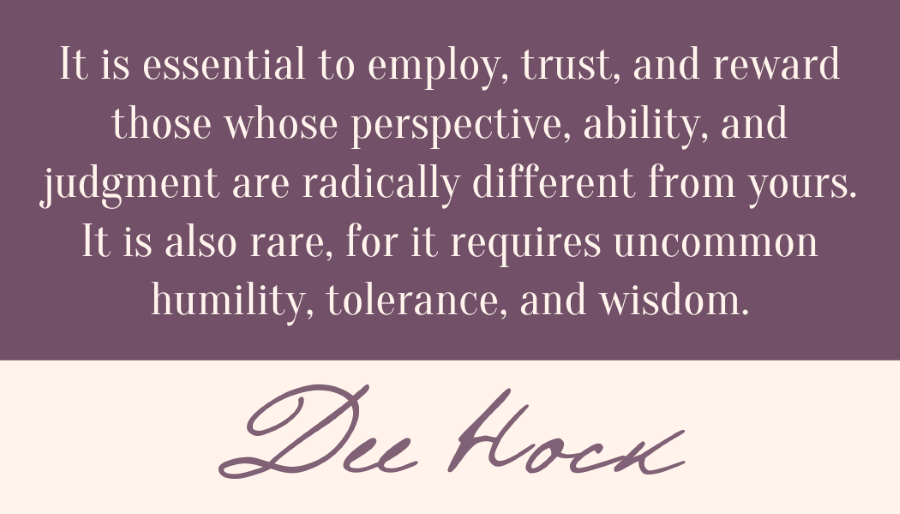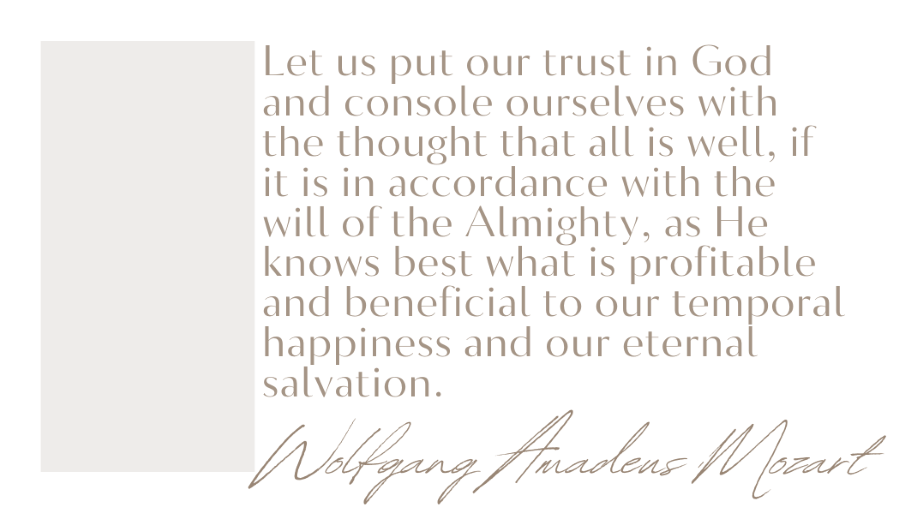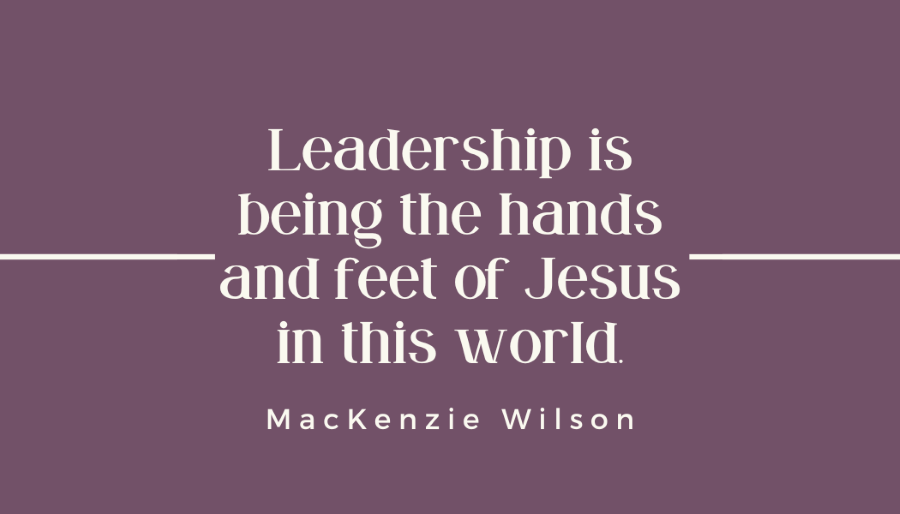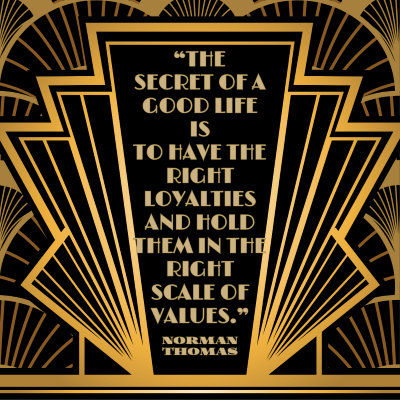60 Poetic Passages within the Bible
The Bible is replete with poetic language that captures the depth of human experience and divine interaction while creating a lyrical cadence that elevates spiritual messages and teachings. The poetic passages in the Bible convey the grandeur of God's creation, the intimacy of human relationships, and the intricacies of faith, providing immutable inspiration and comfort. Through its rich and ornate tradition, the Bible offers a unique fusion of literary beauty and spiritual insight, imparting readers with an experience of beauty and contemplation.
Echoes of Sacred Wisdom
The following passages use poetry to express worship, reflection, and instruction.
Psalm 91:4: He will cover you with his feathers, and under his wings you will find refuge, his faithfulness will be your shield and rampart.
1 Corinthians 13:4-7: Love is patient, love is kind. It does not envy, it does not boast, it is not proud. It does not dishonor others, it is not self-seeking, it is not easily angered, it keeps no record of wrongs. Love does not delight in evil but rejoices with the truth. It always protects, always trusts, always hopes, always perseveres.
John 15:5: I am the vine; you are the branches. If you remain in me and I in you, you will bear much fruit; apart from me, you can do nothing.
Psalm 84:11: For the Lord God is a sun and shield; the Lord bestows favor and honor; no good thing does he withhold from those whose walk is blameless.
Isaiah 35:10: And those the Lord has rescued will return. They will enter Zion with singing; everlasting joy will crown their heads. Gladness and joy will overtake them, and sorrow and sighing will flee away.
Hebrews 4:12: For the word of God is alive and active. Sharper than any double-edged sword, it penetrates even to dividing soul and spirit, joints and marrow; it judges the thoughts and attitudes of the heart.
Psalm 8:3-4: When I consider your heavens, the work of your fingers, the moon, and the stars, which you have set in place, what is mankind that you are mindful of them, human beings that you care for them?
Proverbs 18:10: The name of the Lord is a fortified tower; the righteous run to it and are safe.
Psalm 23:1-4: The Lord is my shepherd, I lack nothing. He makes me lie down in green pastures, he leads me beside quiet waters, he refreshes my soul. He guides me along the right paths for his name’s sake. Even though I walk through the darkest valley, I will fear no evil, for you are with me; your rod and your staff, they comfort me.
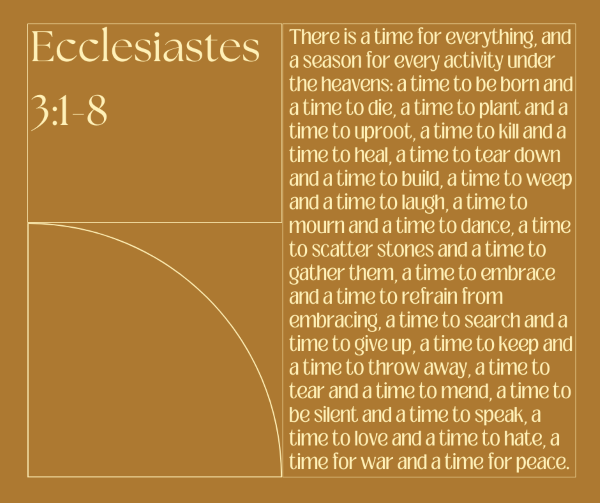
Ecclesiastes 3:1-8: There is a time for everything, and a season for every activity under the heavens: a time to be born and a time to die, a time to plant and a time to uproot, a time to kill and a time to heal, a time to tear down and a time to build, a time to weep and a time to laugh, a time to mourn and a time to dance, a time to scatter stones and a time to gather them, a time to embrace and a time to refrain from embracing, a time to search and a time to give up, a time to keep and a time to throw away, a time to tear and a time to mend, a time to be silent and a time to speak, a time to love and a time to hate, a time for war and a time for peace.
Isaiah 40:8: The grass withers and the flowers fall, but the word of our God endures forever.
John 14:27: Peace I leave with you; my peace I give you. I do not give to you as the world gives. Do not let your hearts be troubled and do not be afraid.
Revelation 22:5: There will be no more night. They will not need the light of a lamp or the light of the sun, for the Lord God will give them light. And they will reign forever and ever.
Psalm 103:2-5: Praise the Lord, my soul, and forget not all his benefits—who forgives all your sins and heals all your diseases, who redeems your life from the pit and crowns you with love and compassion, who satisfies your desires with good things so that your youth is renewed like the eagles.
Zephaniah 3:9: Then I will purify the lips of the peoples, that all of them may call on the name of the Lord and serve him shoulder to shoulder.
Psalm 30:5: For his anger lasts only a moment, but his favor lasts a lifetime; weeping may stay for the night, but rejoicing comes in the morning.
Isaiah 61:10: I delight greatly in the Lord; my soul rejoices in my God. For he has clothed me with garments of salvation and arrayed me in a robe of his righteousness, as a bridegroom adorns his head like a priest, and as a bride adorns herself with her jewels.
Psalm 119:105: Your word is a lamp for my feet, a light on my path.
Colossians 1:16-17: For in him all things were created: things in heaven and on earth, visible and invisible, whether thrones or powers or rulers or authorities; all things have been created through him and for him. He is before all things, and in him, all things hold together.
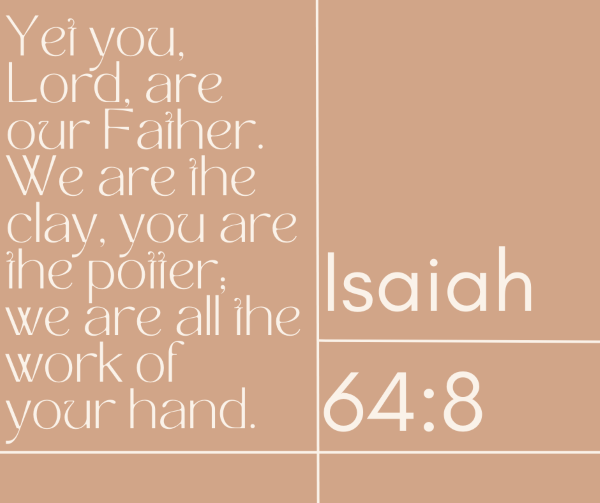
Isaiah 64:8: Yet you, Lord, are our Father. We are the clay, you are the potter; we are all the work of your hand.
Isaiah 44:22: I have swept away your offenses like a cloud, your sins like the morning mist. Return to me, for I have redeemed you.
Psalm 107:9: For he satisfies the thirsty and fills the hungry with good things.
Romans 8:38-39: For I am convinced that neither death nor life, neither angels nor demons, neither the present nor the future, nor any powers, neither height nor depth nor anything else in all creation, will be able to separate us from the love of God that is in Christ Jesus our Lord.
Isaiah 49:15-16: Can a mother forget the baby at her breast and have no compassion on the child she has borne? Though she may forget, I will not forget you! See, I have engraved you on the palms of my hands; your walls are ever before me.
Psalm 63:1: You, God, are my God, earnestly I seek you; I thirst for you, my whole being longs for you, in a dry and parched land where there is no water.
Jeremiah 17:7-8: But blessed is the one who trusts in the Lord, whose confidence is in him. They will be like a tree planted by the water that sends out its roots by the stream. It does not fear when heat comes; its leaves are always green. It has no worries in a year of drought and never fails to bear fruit.
Hebrews 11:1: Now faith is confidence in what we hope for and assurance about what we do not see.
Proverbs 26:27: Whoever digs a pit will fall into it; if someone rolls a stone, it will roll back on them.
Isaiah 40:11: He tends his flock like a shepherd: He gathers the lambs in his arms and carries them close to his heart; he gently leads those that have young.
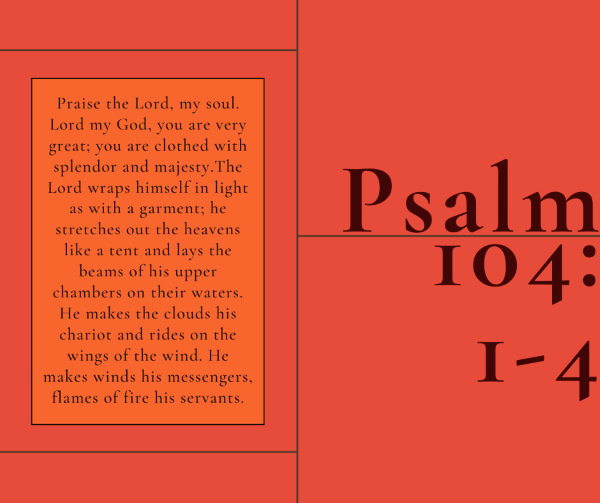
Psalm 104:1-4: Praise the Lord, my soul. Lord my God, you are very great; you are clothed with splendor and majesty. The Lord wraps himself in light as with a garment; he stretches out the heavens like a tent and lays the beams of his upper chambers on their waters. He makes the clouds his chariot and rides on the wings of the wind. He makes winds his messengers, flames of fire his servants.
Luke 6:38: Give, and it will be given to you. A good measure, pressed down, shaken together, and running over, will be poured into your lap. For with the measure you use, it will be measured to you.
Psalm 139:13-16: For you created my inmost being; you knit me together in my mother’s womb. I praise you because I am fearfully and wonderfully made; your works are wonderful, I know that full well. My frame was not hidden from you when I was made in the secret place when I was woven together in the depths of the earth. Your eyes saw my unformed body; all the days ordained for me were written in your book before one of them came to be.
Isaiah 55:12: You will go out in joy and be led forth in peace; the mountains and hills will burst into song before you, and all the trees of the field will clap their hands.
Colossians 3:16: Let the message of Christ dwell among you richly as you teach and admonish one another with all wisdom through psalms, hymns, and songs from the Spirit, singing to God with gratitude in your hearts.
Psalm 1:1-4: Blessed is the one who does not walk in step with the wicked or stand in the way that sinners take or sit in the company of mockers, but whose delight is in the law of the Lord, and who meditates on his law day and night. That person is like a tree planted by streams of water, which yields its fruit in season and whose leaf does not wither— whatever they do prospers. Not so the wicked! They are like chaff that the wind blows away.
1 John 4:18: There is no fear in love. But perfect love drives out fear because fear has to do with punishment. The one who fears is not made perfect in love.
Proverbs 4:23: Above all else, guard your heart, for everything you do flows from it.
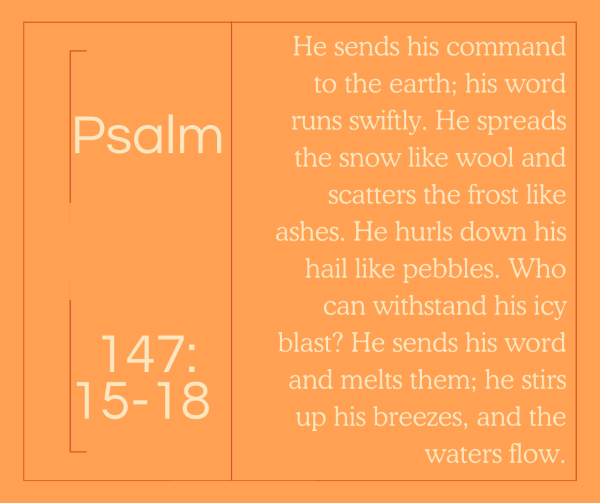
Psalm 147:15-18: He sends his command to the earth; his word runs swiftly. He spreads the snow like wool and scatters the frost like ashes. He hurls down his hail like pebbles. Who can withstand his icy blast? He sends his word and melts them; he stirs up his breezes, and the waters flow.
Isaiah 43:2: When you pass through the waters, I will be with you; and when you pass through the rivers, they will not sweep over you. When you walk through the fire, you will not be burned; the flames will not set you ablaze.
Job 12:7-10: But ask the animals, and they will teach you, or the birds in the sky, and they will tell you, or speak to the earth, and it will teach you, or let the fish in the sea inform you. Which of all these does not know that the hand of the Lord has done this? In his hand is the life of every creature and the breath of all mankind.
Psalm 33:6: By the word of the Lord the heavens were made, their starry host by the breath of his mouth.
Ecclesiastes 7:8: The end of a matter is better than its beginning, and patience is better than pride.
John 10:14: I am the good shepherd; I know my sheep and my sheep know me.
Ephesians 1:18: I pray that the eyes of your heart may be enlightened in order that you may know the hope to which he has called you, the riches of his glorious inheritance in his holy people.
Psalm 34:7: The angel of the Lord encamps around those who fear him, and he delivers them.
Hebrews 12:1-2: Therefore, since we are surrounded by such a great cloud of witnesses, let us throw off everything that hinders and the sin that so easily entangles. And let us run with perseverance the race marked out for us, fixing our eyes on Jesus, the pioneer and perfecter of faith. For the joy set before him, he endured the cross, scorning its shame, and sat down at the right hand of the throne of God.
Psalm 119:114: You are my refuge and my shield; I have put my hope in your word.
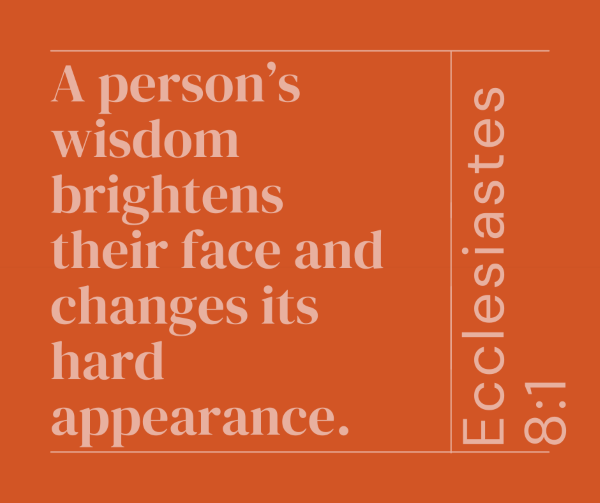
Ecclesiastes 8:1: A person’s wisdom brightens their face and changes its hard appearance.
Psalm 42:1-2: As the deer pants for streams of water, so my soul pants for you, my God. My soul thirsts for God, for the living God. When can I go and meet with God?
Isaiah 40:31: But those who hope in the Lord will renew their strength. They will soar on wings like eagles; they will run and not grow weary, they will walk and not be faint.
Psalm 19:14: May these words of my mouth and this meditation of my heart, be pleasing in your sight, Lord, my Rock and my Redeemer.
Mark 8:36: What good is it for someone to gain the whole world, yet forfeit their soul?
Psalm 139:9-10: If I rise on the wings of the dawn, if I settle on the far side of the sea, even there your hand will guide me, your right hand will hold me fast.
Hebrews 13:8: Jesus Christ is the same yesterday and today and forever.
Psalm 19:1-2: The heavens declare the glory of God; the skies proclaim the work of his hands. Day after day they pour forth speech; night after night they reveal knowledge.
Matthew 6:26: Look at the birds of the air; they do not sow or reap or store away in barns, and yet your heavenly Father feeds them. Are you not much more valuable than they?
Isaiah 53:5: But he was pierced for our transgressions, he was crushed for our iniquities; the punishment that brought us peace was on him, and by his wounds we are healed.
Psalm 40:1-3: I waited patiently for the Lord; he turned to me and heard my cry. He lifted me out of the slimy pit, out of the mud and mire; he set my feet on a rock and gave me a firm place to stand. He put a new song in my mouth a hymn of praise to our God. Many will see and fear the Lord and put their trust in him.
Psalm 119:130: The unfolding of your words gives light; it gives understanding to the simple.
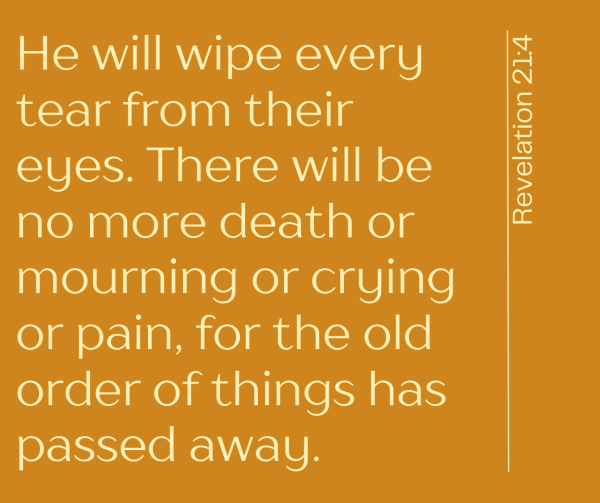
Revelation 21:4: He will wipe every tear from their eyes. There will be no more death or mourning or crying or pain, for the old order of things has passed away.
A Final Whisper
Truly, through its poetry, the Bible communicates God’s splendor, the depth of His love, and the reality of human existence in ways that engage both the mind and the heart.
-Torrance Community Church of Christ

